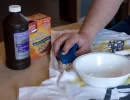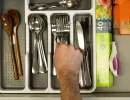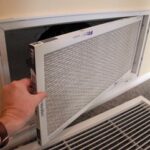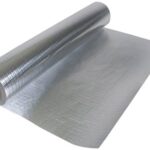Energy expert Dennis Stinson offers smart ways to take the pain out of rising gas and electric prices when trying to keep your home warm and cozy during the winter.
This winter, Americans are shelling out significantly more cold cash to keep warm than they did last year—a trend expected to continue into the spring/summer cooling season—making optimal energy efficiency more essential than ever.
Here are today’s financially frostbiting facts: Natural gas costs 15% more, heating oil is up 26% and electricity has risen 7% for winter 2022/23 versus 2021/22, according to The U.S. Energy Information Administration. Nearly one-quarter (22%) of U.S. households were unable to pay their energy bills in full as of December 2022, according to the U.S. Census Bureau. Further, the number of households receiving energy assistance this winter represent the largest one-year increase since 2009, according to the National Energy Assistance Directors Association’s January 2023 Midwinter Energy Update. Exacerbating the situation is surging demand due to our post-pandemic work-at-home dynamic, increasing the need to keep our homes comfortable 24–7.

The good news is that families can prevent a utility bill blitz by following a few simple tips. With home heating and cooling accounting for more than half (54%) of home energy use, these small steps can go a long way.
Leverage 2022 Tax Credits
The 2022 Inflation Reduction Act is a landmark piece of legislation that encourages us to transition towards a new era of energy efficiency and decarbonization. It allocates $369 billion towards energy efficiency and offers households tax credits for energy efficient improvements that save money in the long run. These efficiency improvements include upgraded windows, doors, insulation, and other home weatherization such as highly-efficient heating and cooling appliances like heat pumps. For example, households can claim a tax credit for 30% of the costs of buying and installing a heat pump—up to $2,000—including support for any electric system upgrades needed to make the home heat-pump-ready. Further, many manufacturers offer valuable rebates. The newly enacted Inflation Reduction Act will provide income eligible households up to $ 14,000 when fully implemented in 2024.
Get “Smart” Climate Control
When it comes to smart home temperature control, look into smart HVAC systems and thermostats. Smart HVAC systems have built-in Internet capability and can be controlled directly without additional equipment. Smart home thermostats enable remote temperature control via a mobile or Internet-connected device or voice-operated home automation system.
Take control of your comfort. Most HVAC manufacturers offer apps that enable systems to be controlled from anywhere using a mobile device. Voice-control capability uses digital assistants, like Amazon Alexa or Google Home, to verbally dictate home temperatures. Easily controlling the temperature more closely, allows homeowners to be more comfortable and improve energy savings.
Find Your Comfort Zone
Many of us live in homes designed for bigger families, but have yet to downsize. If you find yourself using a fraction of your home on a regular basis, consider upgrading to a zoned ducted, or ductless system. That will allow you to save energy heating and cooling spaces where you and your family don’t spend a lot of time. This will multiply savings as you’re not only needing less heating but you also gain from a more efficient system in the spaces you do still use.
Ward Off Energy Vampires
An “energy vampire” is a device that continues to draw power even when it is turned off or idle. These account for as much as 20% of your electric bill. A few examples are coffee makers, toasters, hair dryers, laptops and other appliances that are plugged in but aren’t in use all the time. Unplug them completely or connect them to advanced power strips that will cut power when appropriate.
Turn Down the Temperature
Even a slight temperature decrease can make a difference. You can save as much as 10% a year on heating and cooling by simply adjusting your thermostat a mere 7 to 10 degrees from its normal setting for 8 hours a day. Keep your house cooler when you are away, and set it as low as is comfortable when you are home.
Put Your Windows to Work
About 30% of a home’s heating energy is lost through windows. Most window coverings are operable, and yet 75% of residential window coverings remain in the same position every day, according to a study by the U.S. Department of Energy (DOE). Open window coverings in the morning to allow the sun to heat your home through the day—especially on windows that receive direct sunlight.
Not all window coverings are created equal. Tightly installed cellular shades can reduce heat loss by 40%, which equates to about 10% heating energy savings. Close all draperies at night, as well as draperies that don’t receive sunlight during the day. When drawn closed, most conventional draperies can reduce heat loss up to 10%. Heavier fabrics will typically offer slightly better thermal performance.
Circulate Warm Air
Dense, cool air stays close to the floor, and warmer air rises. So, circulate the warm air downward with a low-speed ceiling fan. Reverse the fan’s direction setting so it will distribute warm air back down the walls, gradually raising the ambient room temperature.
Lock In the Warmth
Insulate and fill the gaps that let heat escape from the house. Use caulk, foam strips or expanding foam to seal up unwanted holes in cracks, gaps, and around pipes and fixtures.
In Summary
The secret to successfully managing out-of-control utility bills caused by rising gas and electric prices is to leverage the full spectrum of resources at your disposal—a comprehensive, “whole-house” approach. By combining proper equipment maintenance and system upgrades with other simple strategies like those listed here, homeowners can effectively cut energy use by 20% to 50%, according to the DOE.
About the author: Dennis Stinson is Vice President of Sales for Fujitsu General America, a national manufacturer with local distributors across the country. He is a 30-year industry veteran. To learn more, visit www.constantcomfort.com
See more: Money-Saving Tips for Heating Your Home






 Don Vandervort writes or edits every article at HomeTips. Don has:
Don Vandervort writes or edits every article at HomeTips. Don has:




